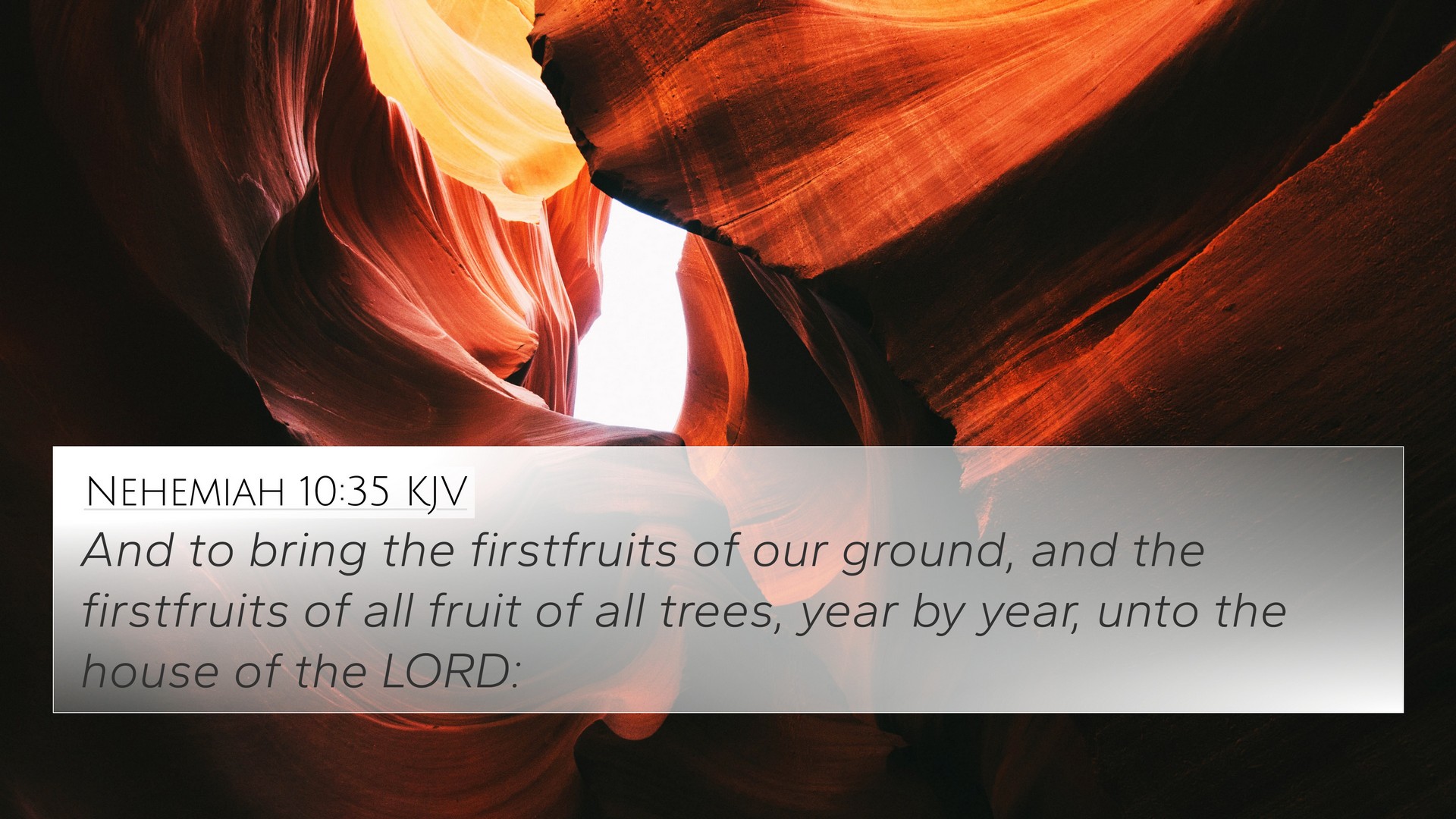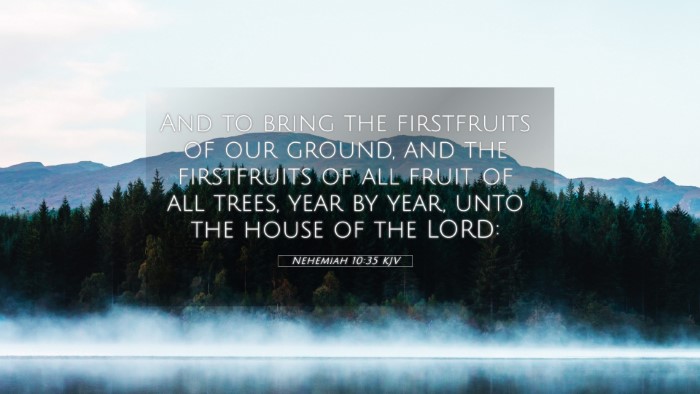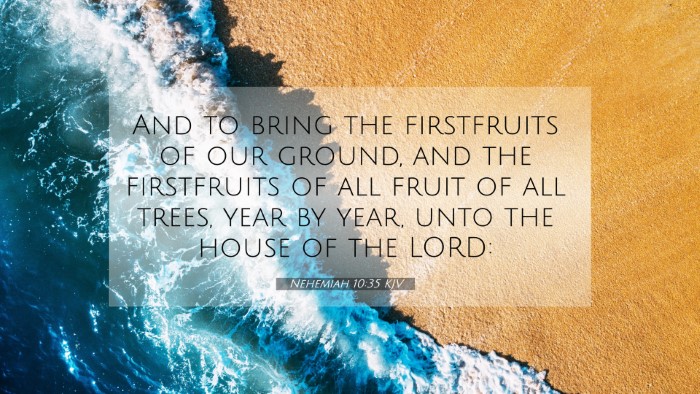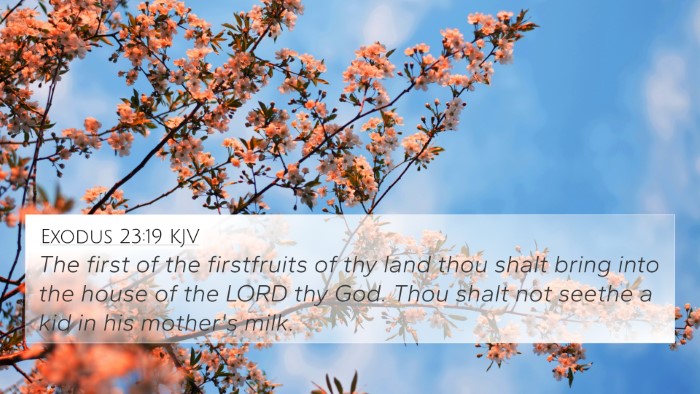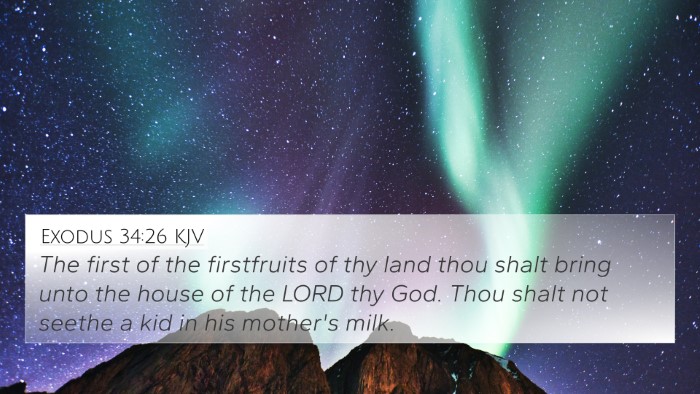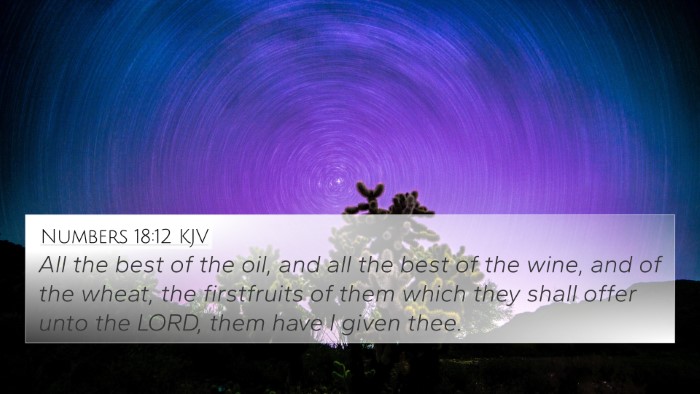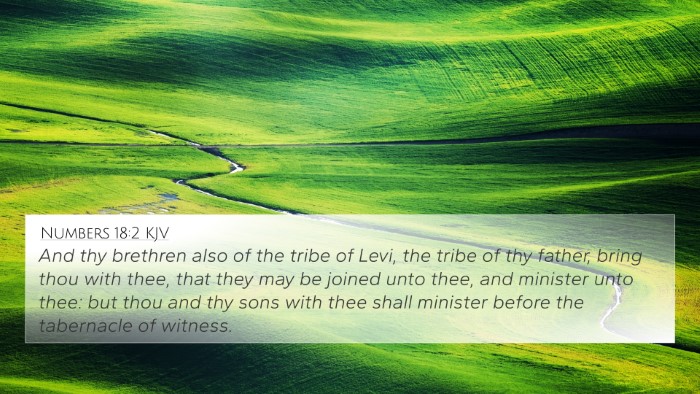Nehemiah 10:35 - Meaning and Interpretation
Nehemiah 10:35 states:
The people of God pledge to bring the firstfruits of their ground and the firstborn of their sons and of their livestock to the house of God, as part of their covenant commitment.
This verse is situated in the context of the Israelites' renewal of their covenant with God after returning from exile. It reflects their desire to restore true worship and obedience to the Law.
Context and Covenant Commitment
Nehemiah and the returning exiles made specific promises to God regarding their offerings and commitments:
- The Firstfruits: They committed to bringing the first fruits of their produce, which symbolizes gratitude and acknowledgment of God's provision.
- The Firstborn: Setting apart the firstborn of their sons and livestock reflects a dedication to God, recalling the Passover in Egypt.
Insights from Commentaries
Matthew Henry's Commentary:
According to Matthew Henry, this verse emphasizes the importance of prioritizing God in all aspects of life. The firstfruits were seen as an acknowledgment of God's sovereignty and provision, suggesting that the initial portions of their harvest, and their family, belonged to God.
Albert Barnes' Commentary:
Barnes highlights the historical practice of offering firstfruits as an act of worship that predates the Law of Moses, showing the Israelites' desire to uphold the sanctity of their traditions. He also emphasizes that their offerings serve as a means to re-establish their relationship with God.
Adam Clarke's Commentary:
Clarke points out that this commitment involved personal sacrifice and was an act of faith, reflecting the Israelites' acknowledgment of the blessings from God. It is not only a physical offering but also signifies their spiritual devotion.
Bible Verse Cross-References
This verse connects with several other scriptures that emphasize similar themes of offerings and dedication:
- Exodus 23:19: "The first of the firstfruits of your land you shall bring into the house of the Lord your God." - Highlights the importance of firstfruits as a joyful act of obedience.
- Deuteronomy 26:2: "You shall take some of the first of all the produce of the ground... and put it in a basket..." - Instructions for offering firstfruits.
- Leviticus 27:26: "But the firstborn of animals, which is the Lord's, no man may dedicate..." - Establishes the principle that the firstborn belongs to God.
- Malachi 3:10: "Bring the full tithe into the storehouse..." - An appeal to the Israelites to fulfill their commitments to God through offerings.
- Romans 12:1: "Present your bodies as a living sacrifice..." - Connecting New Testament callable sacrifices with Old Testament practices.
- Hebrews 10:14: "For by a single offering he has perfected for all time those who are being sanctified." - Reflects on the ultimate sacrifice of Christ as fulfilling the old covenant.
- 1 Corinthians 15:20: "But in fact Christ has been raised from the dead, the firstfruits of those who have fallen asleep." - Illustrates the theme of firstfruits pointing to Christ’s resurrection.
Thematic Bible Verse Connections
The theme of offering the firstfruits ties in with various themes of devotion and sacrifice throughout Scripture:
- The idea of priority in giving to God.
- The importance of obedience and worship in the covenant relationship.
- Connecting the Old Testament practices with New Testament fulfillments of grace and faith.
Applying Nehemiah 10:35 Today
This verse can serve as a guide for Christians today regarding:
- Faithfulness in Offerings: Encouraging believers to commit to giving their best to God, whether in time, talents, or resources.
- Prioritizing God in Life: Making God central in all aspects of life, including financial planning and family commitments.
In conclusion, Nehemiah 10:35 serves as a profound reminder of the importance of offering our first and best to God. By exploring various biblical cross-references, we can deepen our understanding of the continuity of God's call for dedication and sacrifice through different eras of His covenant with humanity.
